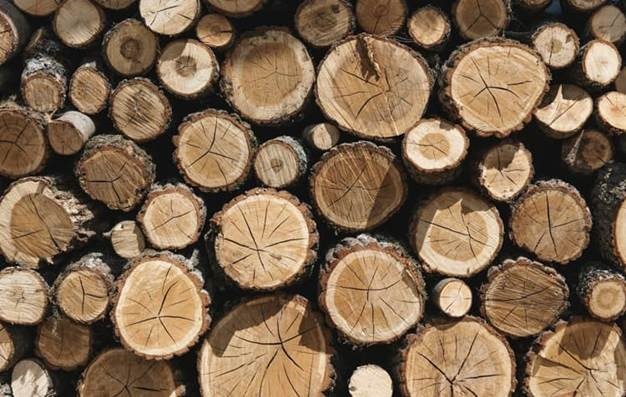
Image credit: The Edge Markets
Red Meranti wood decks the façade and makes a striking feature for the Malaysia Pavilion at the Expo 2020 Dubai. The Pavilion’s “Rainforest Canopy” design symbolises a symbiotic relationship between humanity and nature, while the use of sustainable timber as building material makes a bold statement about the country’s sustainable forestry resources.
Malaysia has developed a timber export industry that is now the envy of our Asian neighbours, achieving total export of timber products worth RM17.81 billion (US$4.4 billion) in 2020. Yet our country has also retained more than 50% of its total landmass as tropical forest, in the midst of rising population growth and infrastructure demands throughout 65 years of post-independence nation building.
Our nation’s achievements in the forestry sector are encapsulated by Malaysia’s theme for Expo 2020 Dubai, “Energising Sustainability”. Depicting a strong commitment to climate change mitigation and forest conversation, our rainforest canopy-inspired Pavilion tells the story of how Malaysia has strived to maintain the right balance between natural conservation and socio-economic development.
Protecting the lungs of the planet
Recognising forests as the lungs of our planet, Malaysia has endeavoured to be the leading tropical country in protecting this ancient biosphere for the shared prosperity of humankind. Adoption of sustainable forest management (SFM) practices have increased ever since Malaysia pledged to maintain at least 50% of the country’s land mass under forest cover at the 1992 Earth Summit in Rio, Brazil.
Central to this goal is the Malaysian Timber Certification Scheme (MTCS) which is managed by the Malaysian Timber Certification Council (MTCC). In 2009, the MTCS became the first certification scheme for forests in the Asia Pacific to be endorsed by the Programme for the Endorsement of Forest Certification (PEFC), the world’s largest forest certification system.
Recently at PEFC’s 25th General Assembly in 2020, Malaysia was awarded the Gold Medal for achieving the biggest increase in PEFC-certified forest area, the best in the world – with over 950,000 hectares in 10 forest management units in the states of Johor, Sabah, and Sarawak – or an annual increase of over 20%, taking the PEFC-certified forest area in Malaysia to more than 5.2 million hectares.
Balancing conservation with development
As a resource-rich country, Malaysia’s primary industries, most notably forestry, are a significant part of our economy. Since timber resources are among the country’s major income earners, balancing nature preservation with industry needs is certainly not a walk in the park. Certification therefore plays a critical role for maintaining the right balance between conservation and development.
The new Malaysian Forestry Policy launched in 2021 reaffirms the importance of certification as an important tool, with special reference made to the MTCS in promoting SFM. As a voluntary national scheme, the MTCS provides for independent assessment of forest management practices to ensure they meet the requirements of prescribed forest management certification standards.
Additionally, it provides for independent audit of timber product manufacturers or exporters through Chain of Custody (CoC) certification to ascertain that the timber-based products manufactured or exported are sourced from sustainably managed forests. All MTCS certified timber products are also allowed to carry the PEFC label, which is accepted in many developed countries, most notably in Europe.
Apart from requiring timber companies to adopt good manufacturing practices, certification encourages industry players to keep abreast with technology advancement and the growing trend of green products where the demand for ethically sourced timber is high. As a marketing tool, certification also gives local industry players a competitive edge to compete at the global level.
Besides the 382 CoC certificate holders, a total of 5.35 million hectares of forests have been certified under the MTCS, which include 21 FMUs and nine FPMUs, as of Dec 31, 2021. The annual export of certified timber and timber products have notably increased over the years, with a cumulative total of 2.62 million cubic metres exported to 72 destinations across the globe, as of July 31, 2021.
The key objective of forest management in Malaysia has been to ensure continuity of product flow, while conserving our complex ecosystems and maintaining our rich and varied flora and fauna. Malaysia’s continued achievements in sustainable agricommodity emphasise that the development of the timber industry can and must go hand-in-hand with the conservation of tropical forests.
Energising sustainability for shared prosperity
Meranti is just one of the MTCS certified sustainable timber and timber-based products promoted via the Malaysia Pavilion’s permanent exhibits at Expo 2020 Dubai, as well as the week-long trade and business programme on Sustainable Agricommodities (Non-Food) that was recently led by the Ministry of Plantation Industries and Commodities and Malaysian Timber Council in January 2022.
The Middle East continues to be a significant market for Malaysia’s timber industry, which is evident with the existence of MTC’s regional office for Middle East & Africa in Dubai. In 2020, exports of timber and timber-based products to the UAE stood at US$77.2 million. Furniture, sawntimber and fibreboards are some of the main timber products exported to the UAE.
Malaysia hopes to continue sharing stories of our sustainable agricommodity development at Expo 2020 Dubai and beyond. We look forward to expanding our business collaborations with the UAE and countries around the world to increase trade of sustainable timber, while exploring new and innovative ideas to preserve our forests for shared prosperity in the future.
Source: https://www.thesundaily.my/business/cultivating-malaysia-s-timber-sustainably-YH8900133

